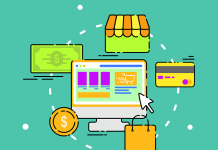We’ve all been there—buying something not because we needed it, but because it felt good in the moment. Maybe it was a rough day at work, a stressful week, or even a celebration that seemed to call for a little splurge. Emotional spending might offer temporary relief, but over time it can drain savings, increase debt, and create long term regret. Some people even realize that ongoing emotional purchases have contributed to bigger money problems, prompting them to explore solutions like debt consolidation in California as part of regaining control. The good news is that by understanding the roots of emotional spending and applying a few strategies, you can protect both your wallet and your peace of mind.
Recognizing Emotional Triggers
Emotional spending often begins with a trigger. Stress, sadness, boredom, or even happiness can spark the urge to buy something as a quick fix. The first step in avoiding this pitfall is identifying what drives your spending habits. Do you tend to shop online late at night? Do you buy treats whenever you’re anxious or upset? By tracking these moments and noticing patterns, you gain awareness that helps you prepare for them. Awareness is the foundation for making better choices.
The Pause Before the Purchase
One powerful strategy is practicing a pause before buying. Instead of immediately checking out or swiping your card, step back and give yourself time to reflect. Try the 24 hour rule: wait a full day before deciding whether to complete the purchase. Often, the emotional high will fade, and you’ll realize the item isn’t as necessary as it felt in the moment. This habit of pausing not only saves money but also strengthens your ability to separate wants driven by emotion from true needs.
Building a Budget That Works
Budgeting might not sound exciting, but it’s one of the most effective tools for keeping emotional spending in check. A budget gives you a clear roadmap of how much you can afford in different categories, including fun and discretionary spending. Knowing your limits provides structure and reduces the guilt that can come with impulse buys. Instead of feeling restricted, a budget creates freedom by ensuring your money is aligned with your priorities. It also helps you see the bigger picture—such as building savings, paying off debt, or reaching long term financial goals.
Avoiding Temptations
Sometimes the best way to stop emotional spending is to reduce the opportunities for it. Unsubscribing from promotional emails, limiting time on shopping apps, and avoiding malls when you’re feeling vulnerable are simple but effective tactics. If you know certain environments or situations make you more likely to spend, plan ahead to avoid them. Removing temptation makes it easier to resist buying as an emotional outlet and creates space to replace shopping with healthier coping strategies.
Seeking Support and Accountability
Managing emotional spending doesn’t have to be a solo effort. Sharing your goals with a trusted friend, family member, or even a financial advisor can provide accountability. Sometimes just knowing someone will check in with you helps reduce the urge to overspend. Support can also come from talking openly about money challenges and learning from others who have faced similar struggles. You’re not alone in this, and seeking guidance can make the process less overwhelming.
Replacing Spending With Positive Habits
Instead of reaching for your wallet when emotions run high, consider healthier alternatives. Go for a walk, practice mindfulness, journal, or call someone you trust. These activities can reduce stress or boost mood without adding financial strain. Over time, substituting spending with positive habits builds resilience and creates a healthier relationship with both your emotions and your money.
Long Term Benefits of Avoiding Emotional Spending
When you start to regain control over emotional spending, the benefits go far beyond a fuller bank account. You’ll experience less financial stress, more confidence in your decision making, and greater progress toward your long term goals. Instead of regretting past purchases, you’ll feel proud of your ability to pause, reflect, and choose wisely. This shift builds a stronger sense of control and lays the foundation for financial security.
Final Thoughts: Taking Back Control
Emotional spending can sneak up on anyone, but it doesn’t have to control your financial future. By recognizing triggers, pausing before purchases, sticking to a budget, avoiding temptations, and leaning on support, you can break free from the cycle. The result is not only healthier finances but also a stronger sense of peace and confidence in your ability to handle life’s ups and downs without turning to shopping as a solution.







































